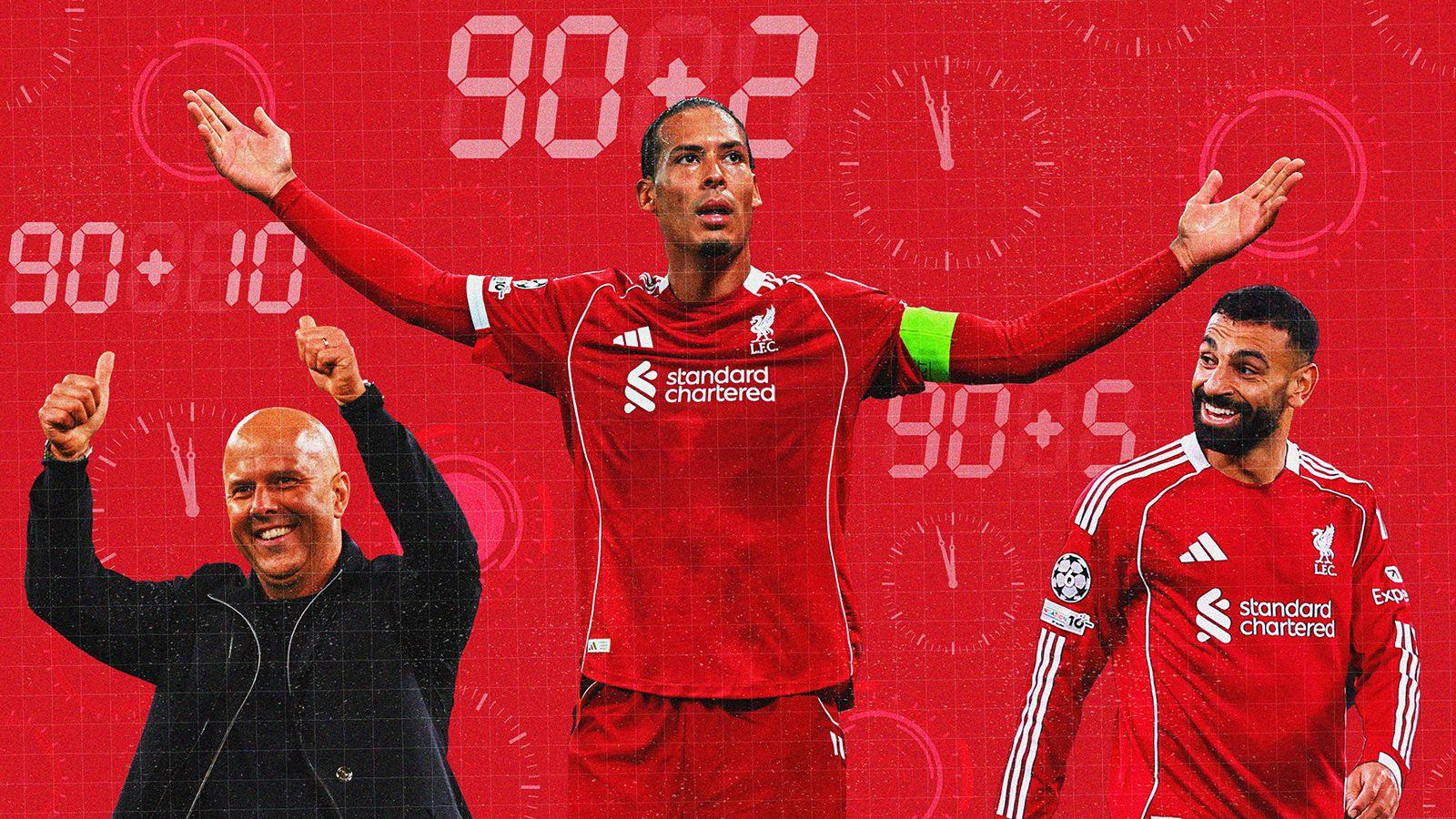‘Slot-Age Time’: Decoding Liverpool’s Clutch Performances
When Marcos Llorente scored his second goal, leveling the score for Atletico Madrid against Liverpool at Anfield, the Atletico bench erupted. Their celebrations were understandable; with less than ten minutes remaining, they had weathered a storm of Liverpool chances and clawed their way back into the game. But this is Arne Slot’s Liverpool, a team that has developed a knack for dramatic, late victories. By the time Virgil van Dijk’s powerful header secured a 3-2 win, the stoppage-time goal felt both inevitable and exhilarating for the home crowd. This begs the question: what’s behind Liverpool’s remarkable run of late-game heroics?
A Statistical Dive into Liverpool’s Late Surge
Liverpool’s penchant for scoring decisive goals in the dying moments of matches has been nothing short of extraordinary this season. To illustrate, here’s a summary of their late winners across all competitions:
4-2 vs Bournemouth (H, Premier League) – Federico Chiesa 88′ and Mohamed Salah 90+4′
3-2 vs Newcastle (A, Premier League) – Rio Ngumoha 90+10′
1-0 vs Arsenal (H, Premier League) – Dominik Szoboszlai 83′
1-0 vs Burnley (A, Premier League) – Mohamed Salah (pen) 90+3′
* 3-2 vs Atletico Madrid (H, Champions League) – Virgil van Dijk 90+2′
This data reveals that Liverpool’s average match-winning moment this season occurs after the 91st minute. This is a stark contrast to the 2024-25 season, where their average winning goal time in single-goal victories was the 70th minute. The shift is significant and highlights a clear trend, showing the team’s evolution under their new manager.
The current streak is a considerable departure from the previous season, where Liverpool only managed four stoppage-time goals in 48 matches across the Premier League and Champions League, with two of those occurring in a single game against Brentford. They did manage 13 goals after the 80th minute in the Premier League, but several teams surpassed that figure.
What makes Liverpool’s current form even more impressive is that their rivals aren’t matching their late-game heroics. Arsenal, the closest competitor among Premier League teams in the Champions League, lags significantly. It would take looking back 64 games (and 16 months) to find Arsenal scoring five winning goals after the 80th minute, a feat Liverpool has achieved in their last five matches. Liverpool’s current flurry of late goals is already the longest in Premier League history.
The Arne Slot Effect: Instilling Belief and Fitness
Arne Slot, who took over from Jurgen Klopp last summer, attributes Liverpool’s late-game success to a combination of self-belief and superior fitness levels.
There will be games where we are 2-0 up after six minutes, then we will score a third and won’t need stoppage time to get a late winner, Slot stated. There will also be games where we need one in the last minute and we won’t get it. But our mentality is we will always push. It’s also about how fit and how well-prepared we are that we are able to push one more time.
Slot’s emphasis on fitness and a relentless mentality echoes the traits of legendary managers known for their teams’ late-game comebacks. He is already among the managers with the highest percentage of late wins in Premier League history.
Sir Alex Ferguson’s Manchester United was renowned for their Fergie Time exploits, consistently scoring late winners. While Ferguson holds the record for the most winning goals scored after the 81st minute, his long-time rival Arsene Wenger isn’t far behind. However, even Ferguson’s United only managed a maximum run of two consecutive Premier League matches with winners scored after the 80th minute, accomplishing this feat four times. Slot has already surpassed this.
Furthermore, Slot has extended Liverpool’s lead at the top of the Premier League rankings for most 90th-minute-or-later winners. The Reds now boast 47, outpacing Arsenal (34) and Manchester United (33).
Deciphering the Secrets Behind Liverpool’s Slot-Age Time
Liverpool’s late wins this season have manifested under diverse circumstances. They dominated against Bournemouth and Atletico Madrid, building two-goal leads before conceding cheap goals, forcing them to regain the advantage in the final minutes. Against ten-man Newcastle, they surrendered a two-goal lead but secured a late winner against the run of play. In contrast, they struggled to break down resilient defenses against Arsenal and Burnley, eventually triumphing through set-pieces.
There is no single formula for Liverpool’s victories. However, analyzing the nature of these goals offers insight into the underlying factors.
Since Klopp initiated a midfield overhaul in the summer of 2023, Liverpool’s squad has undergone significant changes, with only nine first-team players remaining from the 2022-23 season. A core of senior players who have tasted success under Klopp, including Alisson, Van Dijk, Robertson, and Salah, spearhead this revitalized squad.
Salah has been particularly influential in this season’s late winners, contributing two goals and one assist. Despite the squad’s average age being 26.2, players aged 32.5 or older have been involved in more than half of the late-goal contributions. The average age per involvement for those scoring or assisting these late goals is 28.9, and this would be significantly higher (30.4) without the inclusion of 17-year-old Ngumoha.
Ultimately, whether it’s Slot’s tactical decisions or the players’ performance on the pitch, Liverpool’s experienced players are stepping up in crucial moments. Their guidance and composure are proving invaluable in securing these vital late victories. The team’s blend of youthful exuberance and veteran savvy is making them a force to be reckoned with in tense moments.
